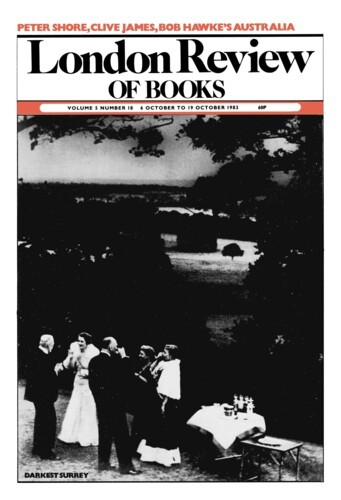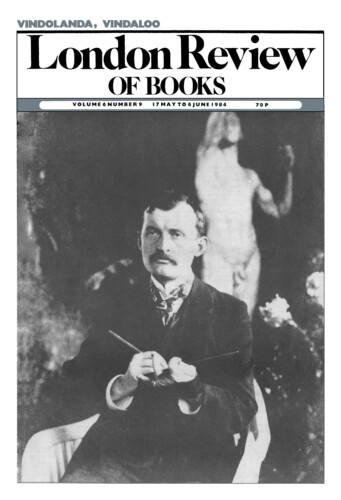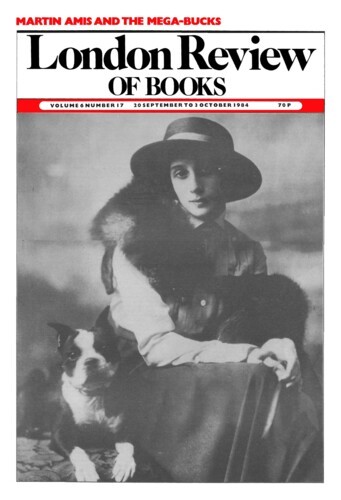Subjects
Craig Raine, 6 October 1983
My subject-matter is subject-matter. Is it true, as it sometimes seems, that certain subjects are inevitably more interesting than others, however much we may protest that they are merely different? For instance, does Robert Lowell’s Life Studies intrigue us more than, say, Tony Harrison’s family reminiscences in Continuous? If so, is it because Lowell’s technique is more sophisticated and fluid than Harrison’s vigorously clanking sonnet sequence in which the rhymes come like a boisterous game of snap? Or is it because the Lowell family tree is richer in eccentricity and event than that of Harrison? Where Lowell can boast a Great Aunt Sarah thundering ‘on the keyboard of her dummy piano’ and ‘risen like the phoenix / from her bed of trouble-some snacks and Tauchnitz classics’, Harrison’s relations are more familiar figures, bickering on Blackpool’s Golden Mile or locked into their ordinarily absurd theatre of non-communication:



